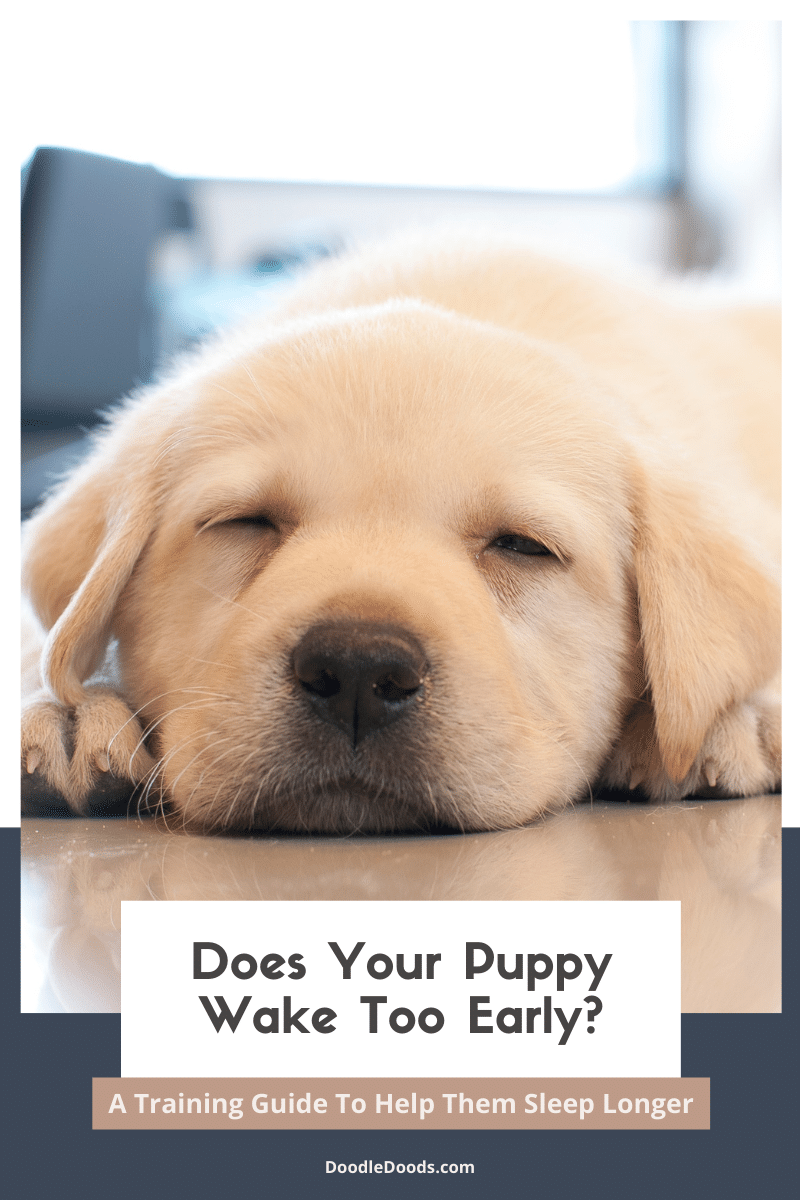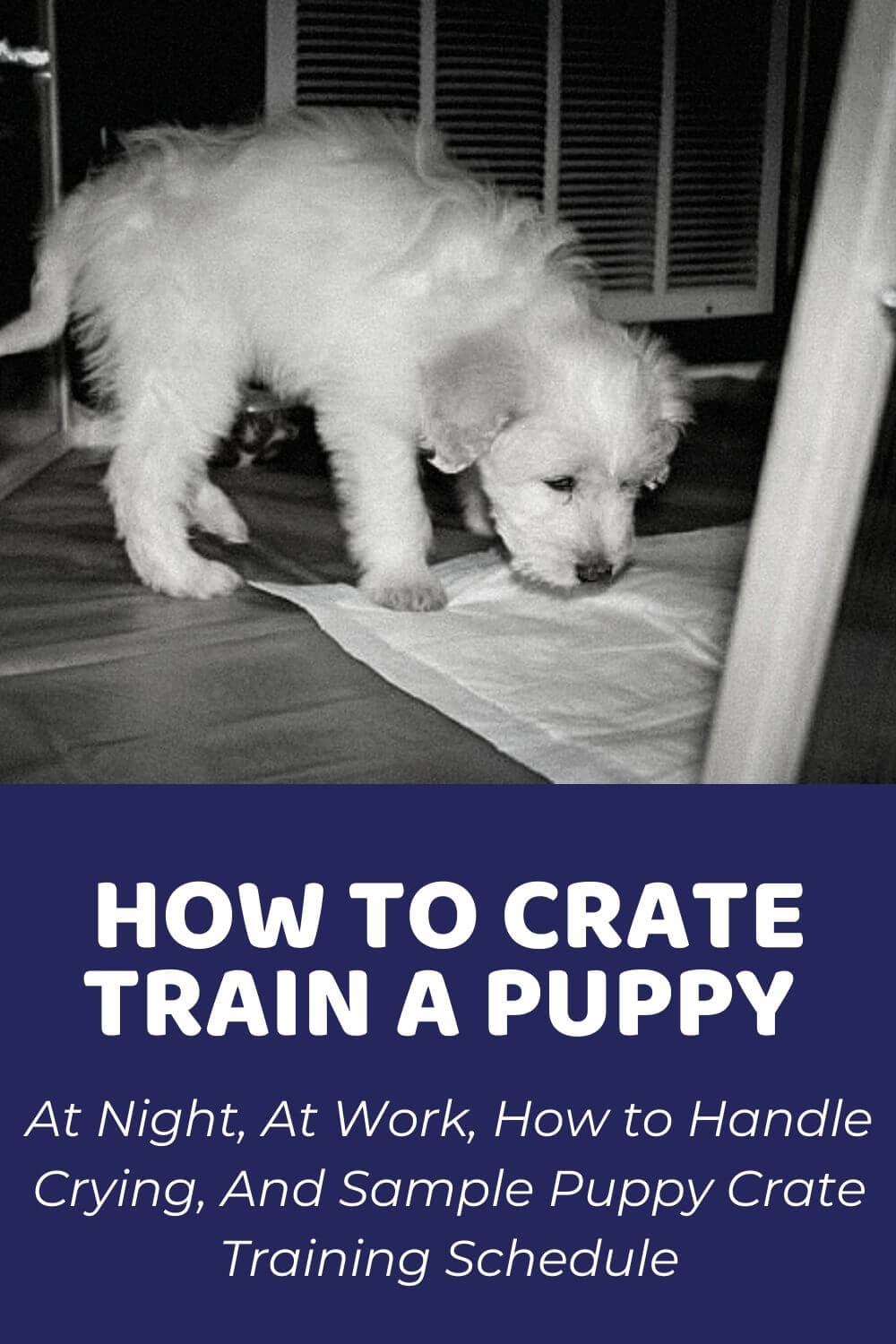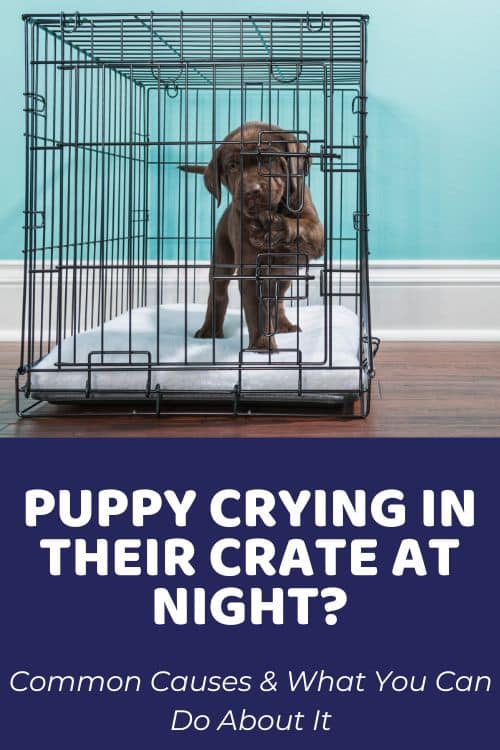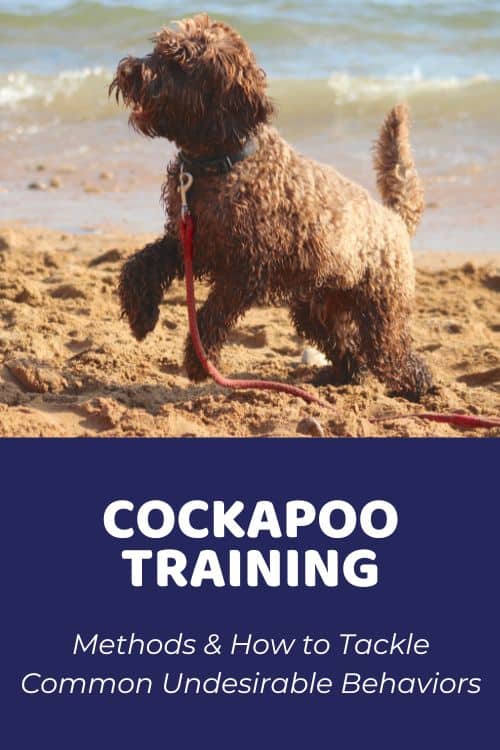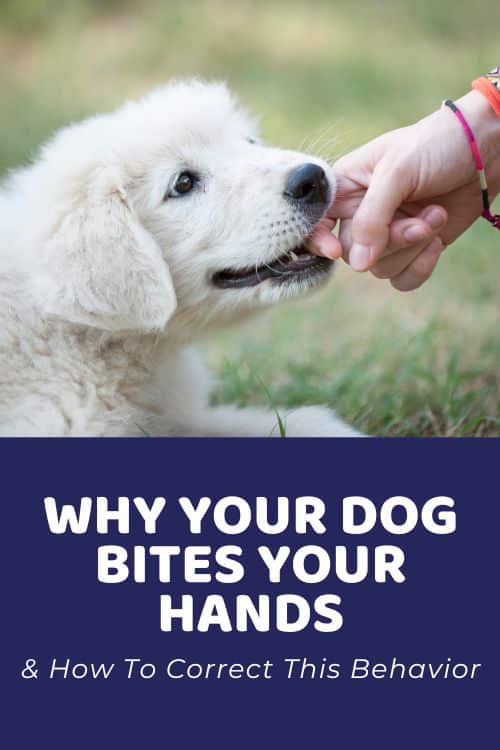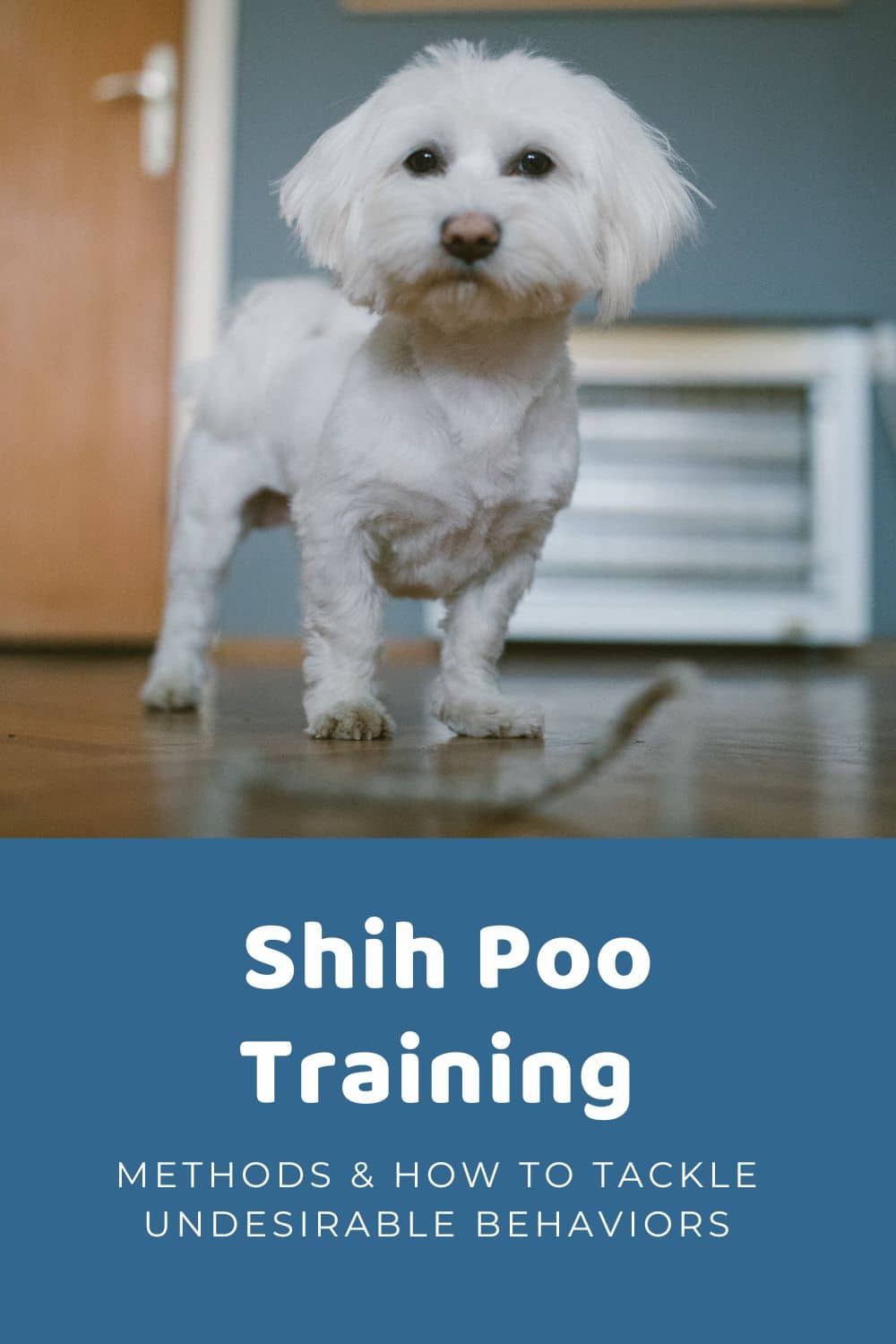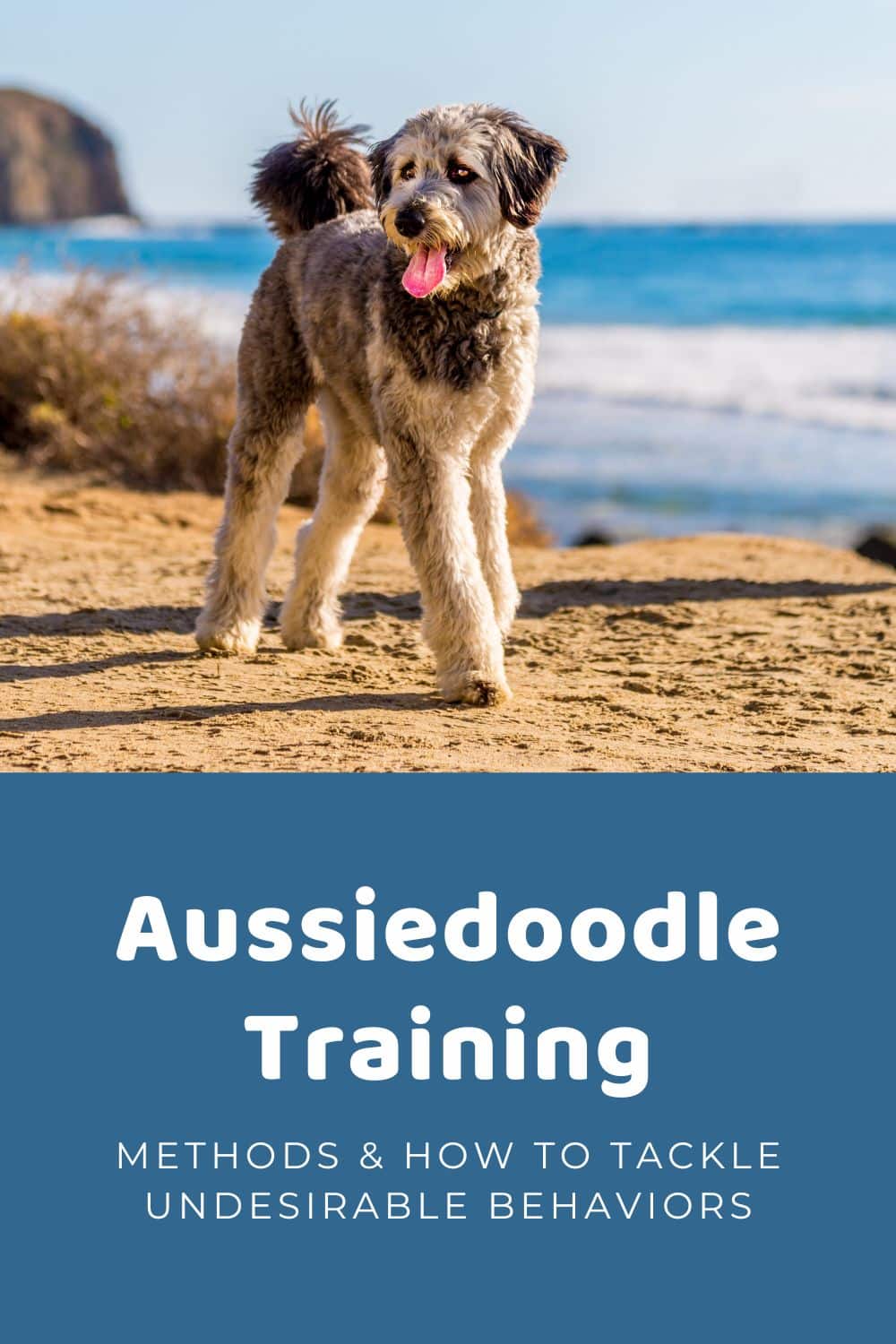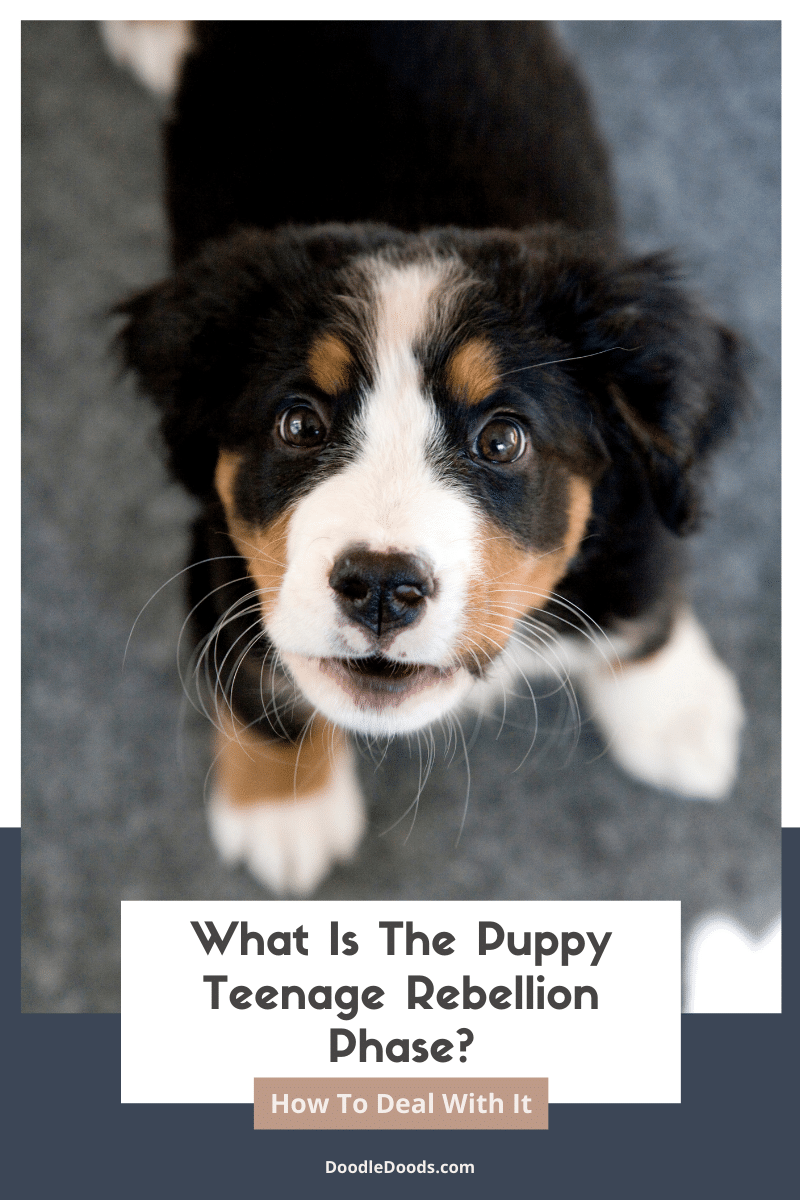A gorgeous new puppy is always a welcome addition to any family. But, let’s face it, despite their darling faces and cute antics, puppies are not without their issues. They chew, jump up, bark, and poop where you don’t want them to, and they can end up disturbing your sleep in more ways than one. If your puppy is waking you up too early, then, let’s face it, you’re not going to be best pleased about it.
Like most other puppy issues, dealing with the pesky problem of them waking you up every morning can be a relatively easy fix. You only need a little time, patience, and know-how to get the job done. While you’ll obviously need to supply the first two, we’ve got you covered here for the third. Keep reading to find out all the best ways you can align your puppy’s sleep schedule with yours for a better night’s rest.
Table of Contents
- Why Your Puppy Likes To Wake Up Early
- Ways To Stop Your Puppy Waking Up Early
- How Many Hours Of Sleep Should Your Puppy Be Getting?
- Frequently Asked Questions About Puppy Sleep Schedules
- Final Thoughts
Why Your Puppy Likes To Wake Up Early
Like every canine behavioral issue, getting to the heart of the matter is key to dealing with it. After all, you can’t just treat the symptom without knowing the cause. When it comes to puppy sleepy time, several physical or psychological problems can underlie mismatches here. Some of the more common are:
Puppies Are Polyphasic Sleepers
Like us, dogs are diurnal, meaning they get most of their zzzz hours in at night. However, while we humans tend to stay awake all day and then sleep for a solid eight hours or so a night, dogs are what we call ‘polyphasic sleepers.’ This means that they will more often than not get their sleeping fix as a series of naps rather than in one long go. So even though dogs tend to sleep more than us on average (around 10 to 12 hours in a 24-hour period), and young puppies even more than that, they often don’t naturally sleep through the night – at least, at first, that is…
Hunger Is To Blame
With their teeny stomachs, puppies typically need to be fed little but often. Throughout the day, you’ll find yourself getting up to feed your pal every three or four hours at least to ensure they get sufficient nutrition. That being said, they should easily be able to last through the night without food. However, a word of caution, if they do get into the habit of eating first thing, their body will come to expect that this remains the case. So you might find your puppy demanding food before you even get up and then earlier and earlier each day after that. It’s not really their fault, though. It’s tough to sleep with a rumbly tummy!
Your Puppy Needs To Pee
As with the food frequency issue, the same with the bladder thing. Young puppies are often incapable of holding everything in all through the night. For this reason, they may try to wake you so you can let them out to do their business – if this is what they have learned to do. You’ll be relieved to hear that this won’t last forever, though. As your pup gets a little older, they will gain better control over their bodily functions. So, from just having one hour’s control at two months, they will gain an hour each month until around eight months of age, when they should be able to last all night.
Noise Is The Culprit
If your puppy is waking up through the night, there might be an issue with their sleeping environment. When you’re sure their sleeping area doesn’t get too bright first thing in the morning, that it’s warm enough for your pup but not too warm, and you know they have somewhere comfy to snuggle, the issue could be that unknown noises are making your pet feel anxious. If your puppy doesn’t feel safe in their environment, they will struggle to sleep. Likewise, if family noises are rousing Fido at the break of the day, they will get excited to be with their people and noisy in the process of this – barking and crying to be let out of wherever you have them shut up for the night.
You’re Encouraging The Behavior
When you’re coming down the stairs first thing each morning and making a big fuss of your puppy (after all, who could resist cuddling all that sweetness?), you might inadvertently be reinforcing their unwanted early morning waking behavior. After all, they know that they will be getting all these things that they love the most as soon as you come and see them in the morning – so they will obviously prompt you to get there a little sooner if you can. Once they learn the actions that bring this about (making lots of noise), they will repeat them – that’s how habits are formed, and they are tough to break.
Health Issues Are Preventing Your Pooch From Sleeping
You also shouldn’t rule out there being a medical problem that is making it difficult for your dog to sleep through the night – especially if you have already come up with ways to address all of the above. When your puppy suddenly starts to wake early, it might be that they are uncomfortable and in pain, or illness or injury is keeping them awake. If you suspect that this might be the case, keep an eagle eye open for any other symptoms that not all is well in their world – signs of pain, loss of appetite, toileting problems, or general malaise. These would all be very good reasons to get them to the vet asap.
You Have A Hyperactive Pup On Your Hands
With some breeds, the problem might be that you simply have an overly energetic dog. Many of the more popular Doodles are a cross between two working canines. The end result can be a furry bundle of exuberance that needs perhaps a whole lot more exercise than you might have anticipated. That’s not to say this will always be the case. Most dogs tend to calm down as they get a little older and successfully sleep through the night a little before that once they have gotten into the routine of doing so. In the meantime, though, you might have to step things up a bit to tire them out and get them to rest all night.
Ways To Stop Your Puppy Waking Up Early
So now that you probably have some idea what is causing the issue, you can take steps towards addressing it. Likely you will need to employ a combination of the below to get your hound into the right kind of sleeping habits that don’t have you up at the crack of dawn each day.
Make Their Sleep Space Extra Cozy
While it may seem your puppy can and will nap pretty much anywhere during daylight hours, they usually do so because they feel safe and secure in your company. You are now their pet parent, after all. However, if you expect them to sleep alone throughout the night, you will need to create an environment that’s conducive to this. Many dog owners swear by crate training their puppy as this sets up the kind of den-like sleeping environment dogs are adapted to. Their ancestors used to sleep underground.
A further benefit of using a crate is that it’s easy enough to drape a blanket over the top of it to keep those early-morning sun rays out. As dogs tend to wake with the sun, ensuring their sleeping space remains darker for longer is your best chance of encouraging them to lie in. There are also plenty of other benefits to crate training, including that it helps with both regular training, toilet training, and effective transport. However, if you’d prefer to do things another way, just be sure to pop your pet’s bed in a warm, quiet, and dark space.
Set Up A Sleep Schedule
Dogs are creatures of habit, both psychically and psychologically. For that reason, they tend to do best with routine. Their body gets accustomed to receiving food at certain times (and toileting will become more predictable with this, too), and they also get used to sleeping and waking to a particular schedule too. That’s why it’s best to be as consistent as possible with your puppy from the get-go. Designate a time to put your puppy to bed each night and to get them up every morning and, no matter what, stick to it.
Ensure They Are Getting What They Need
Other ways you can make your puppy more ready for bed and less likely to disturb you is to be sure they are getting what they need throughout the day. This involves giving them plenty of opportunities for exercise (that being said, there is a limit on how much you should be walking young puppies to avoid putting excess stress on developing bones). However, play and fun and games – especially with puppy toys – will provide your little gal or guy with enough physical and mental stimulation to guarantee they sleep all night long.
The same goes for food. If your puppy is fed enough (at the correct intervals) throughout the day, then they shouldn’t be bothering you first thing in the morning. Make sure this is doubly the case by not feeding them as soon as you wake up. As soon as your puppy understands that they will get fed first thing in the morning, it’s game over for extra sleep time. Either way, avoid leaving either toys or treats with your puppy in the hopes this will keep them busy – it won’t. It will just make things extra noisy when they do get up.
Time Bathroom Breaks Well
To add to the section above, don’t opt to feed your puppy right before bedtime in the hopes that they will stay fuller for longer. While this may seem like a logical approach, the issue with this is that puppies are at the stage where they will still need to go to the toilet every time they eat – somewhere between 5 and 30 minutes, to be a little more specific. So be sure to have dinner time out of the way in good time for everything to (ahem) travel through the pipes. Then make taking your pet out for a pee the last thing you do at night.
As we covered above, though, it’s very rare that a young puppy can last the entire night without needing to pee at least. That’s why you might want to make use of puppy pads, at least in those earlier months. Don’t, however, assume that simply putting them down will be enough and that your puppy will know what they are for and how to use them. Just as you are training your pup to potty in the garden, you’ll have to show them how to use the puppy pads. Getting a little (ahem) toilet scent on them should help them get the idea.
Get Them Checked Out
Whenever issues like this arise, it’s always good to be absolutely sure that the problem isn’t medical. So, it can’t hurt to chat with your vet and get your puppy checked out. Ruling out both injury and illness is always a good thing to do. Plus, if your puppy’s bothersome sleep patterns do turn out to be either psychological or behavioral, your vet should be able to provide some advice on the matter that is specific to your pet – their breed, size, age, etc. They might even be able to recommend some supplements to help.
How Many Hours Of Sleep Should Your Puppy Be Getting?
Puppies can definitely be little bundles of energy, but the truth is they need a whopping 18 – 20 hours of sleep in every 24-hour period to be at their best. After all, you may have noticed that they can power through a lot of energy in a very short amount of time. It may seem especially hard to believe that puppies sleep so much when you’re failing to keep them quiet in the mornings – but don’t forget about that whole puppies sleeping in short bursts thing…
So while it may have occurred to you to keep your puppy awake during the day so they are more likely to sleep at night, in reality, this will often backfire. Overtired behavior can be even worse than regular old playfulness. Instead, work on creating that sleep schedule whereby your pup sleeps while you do. It’s going to take a fair bit of patience, and you’ll need to understand that when you’re puppy is very young, it simply won’t happen. The best thing you can do if your pup has all they need is to ignore them the best you can.
Frequently Asked Questions About Puppy Sleep Schedules
If you’re looking to keep your hound sleeping in the morning for longer, be sure to set them up for success by creating an environment conducive to sleep. Make it soft, secure, warm, dark, and quiet so they can feel safe and snug. Provide puppy pads so when mother nature calls, they won’t have to, and stick to a schedule as much as you can.
One of the main reasons a puppy wakes through the night is because they need to go potty. Having the pads there takes care of that, yet you might find your puppy not so willing to go back to sleep after this. However, from around the age of 8 months, they can go six hours or more without needing to pee at this point they should be sleeping though the night.
Puppies tend to wake with the sun, and that’s why you might find your little love all bright-eyed and bushy-tailed (and crying the house down to be let out) right from dawn. One way to trick the little monkey into staying asleep for longer is to keep their sleep environment as dark as possible – a blanket over the crate or blackout curtains can help.
Putting your puppy to bed when you yourself head up the wooden hill is perfectly fine as long as you typically tend to head to bed around the same time each night. You should find that, once in the habit, they start to get as sleepy as you do around this time. Just be sure to take them outside for one final potty time directly before you put them down.
Final Thoughts
Taking on the responsibility of a new puppy is never an easy task – especially if you have never done it before. While you might have done plenty of early research on the potential issues that do occur to you, chances are more things will come up than you will have been able to anticipate. Many newbie puppy parents complain that their fur baby has them up all hours of the night and refuses to sleep longer than dawn. Knowing the reasons behind your pup’s behavior in terms of this can help you to come up with ways to encourage your cute new pet to sleep right through the night so that you can too.
Learn How to Stop Shavedowns For Good & Keep Matting At Bay!

Discover the PROPER Doodle coat care routine that gets your pup to cooperate…helps you nip tangles in the bud…and gets groomers to do exactly what you want.
Plus, get $520 worth of Bonus Materials for FREE, including:- Doodle Parenthood Community and Support Group ($190 value)
- Custom Doodle Coat Care Plan Lifetime Access ($75 value)
- Easy to Use Doodle Grooming Tracker ($20 value)
- And MORE!

